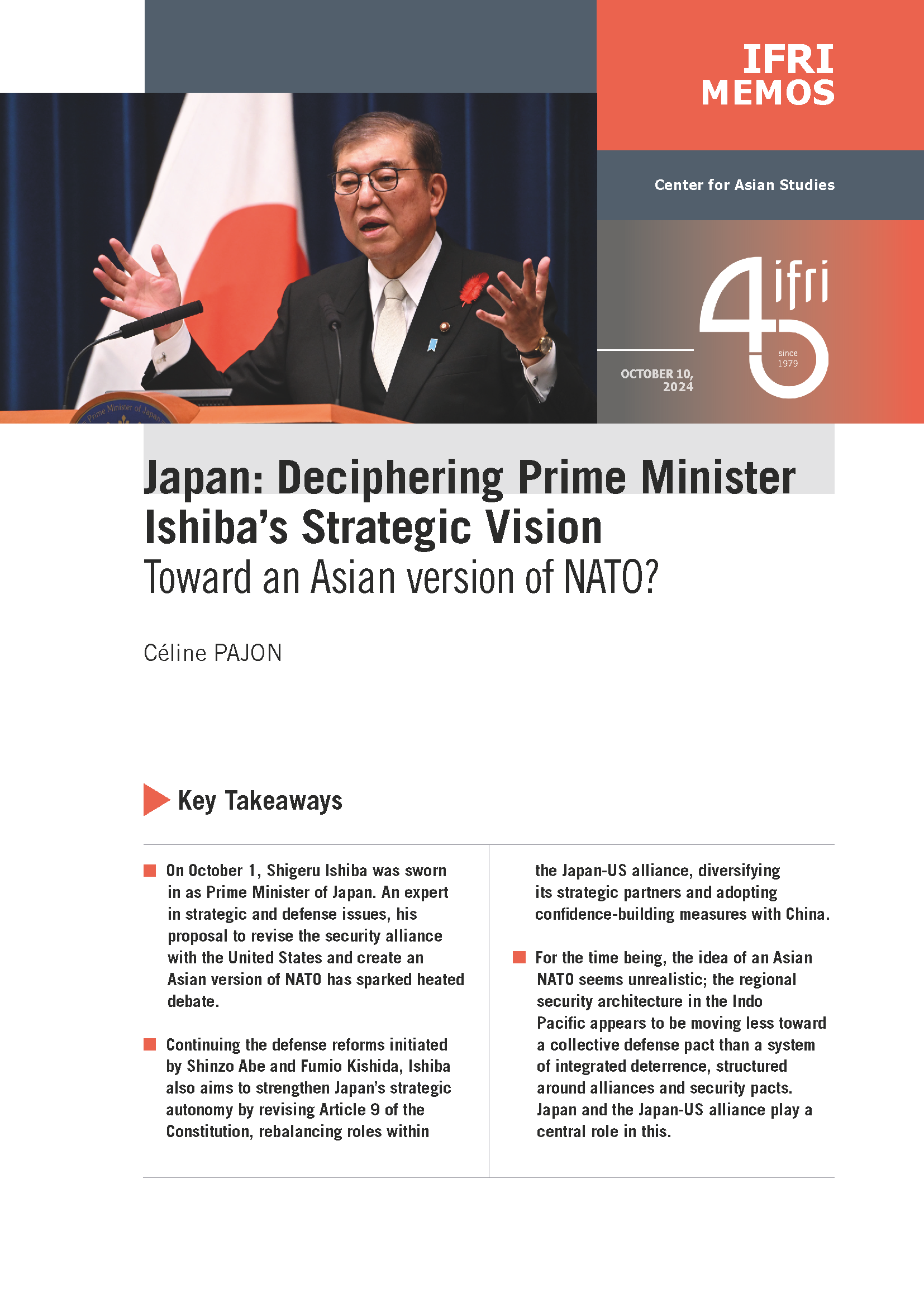
Energy challenges represent one of the most important security paradigms in the Asia Pacific region where you have a mixture of growing energy dependency, fuelled by high economic growth, the emergence of new major players like China and India, and a quasi-complete absence of regional regulatory mechanisms to tackle the challenges in a multilateral way. These challenges mostly concern Japan and China, where crucial energy issues are aggravated by power rivalry, historical and ideological issues, and a lack of both economic and political harmony between them.
Neither countries are self sufficient in terms of energy needs. This can lead to a shared analysis and common approaches regarding Japan and China concerning this issue. Their cases are however very different and the solutions applied are related to different world views that are not reconcilable.
Both countries share common objectives: both want security and stable supply. But there are also big divergences and these divergences could be new sources of conflict and misunderstanding between Tokyo and Beijing.

Also available in:
Regions and themes
Share
Download the full analysis
This page contains only a summary of our work. If you would like to have access to all the information from our research on the subject, you can download the full version in PDF format.
Energy Challenges in Asia
Related centers and programs
Discover our other research centers and programsFind out more
Discover all our analyses
China, technical standardization, and the future of globalization
As the global economy sits at a crossroad between connectivity-driven globalization and strategic decoupling, technical standardization provides a valuable measure of where we are headed.
Japan: Deciphering Prime Minister Ishiba’s Strategic Vision. Toward an Asian version of NATO?
On Tuesday, October 1, Shigeru Ishiba was sworn in as Prime Minister of Japan. His proposal to revise the security alliance with the United States and create an Asian version of the North Atlantic Treaty Organization (NATO) attracted attention and sparked lively debate.

Critical Raw Materials, Economic Statecraft and Europe's Dependence on China
As China tightens export controls on critical minerals, it is important to put Beijing's policies in perspective and analyse how Europe can respond.
China’s Mature Node Overcapacity: Unfounded Fears
China is decoupling from, not flooding, the global mature-node semiconductor market. As China increasingly pursues industrial policies encouraging domestic chip production, its own growing chip demand will prevent a direct flood of cheap Chinese chips on foreign shores. However, as Beijing achieves its goal of decreasing the reliance of domestic downstream manufacturers on foreign chips, European and American mature-node semiconductor companies will feel the ripple effects of an increasingly “involuted” Chinese chip ecosystem.










